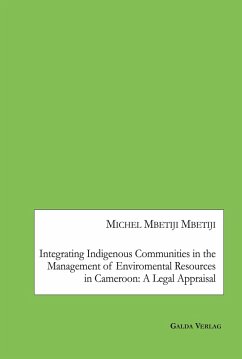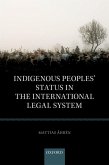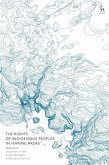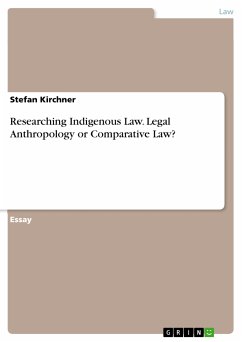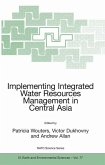It has not only been interesting but equally challenging to research on environment law and specifically the integration of indigenous communities in the management of environmental or natural resources given the cross disciplinary nature of the subject. The need to integrate indigenous or local communities in the management of environmental resources cannot be gainsaid, given the importance of these resources for the sustainability of life. It is certainly for this reason that the international community is advocating for the integration of indigenous people in the management of environmental resources. In this book, the author is worried that Regional and International Conventions to which Cameroon is a signatory advocate the integration of indigenous communities in the management of environmental resources. Yet these communities are still to become an effective component of the management process. This calls for an investigation whether indigenous communities are integrated in the management of natural resources following the provisions of International and Regional Conventions, national laws and cultural practices of local communities or they are simply conceptual. Through analyses of primary and secondary data, the author highlights the need to endowed integrated management concepts with characteristics envisaged by international conventions and strongly recommends the use of traditional institutions and customary practices in integrating local communities in the management of environmental or natural resources.
Dieser Download kann aus rechtlichen Gründen nur mit Rechnungsadresse in A, B, BG, CY, CZ, D, DK, EW, E, FIN, F, GR, HR, H, IRL, I, LT, L, LR, M, NL, PL, P, R, S, SLO, SK ausgeliefert werden.

